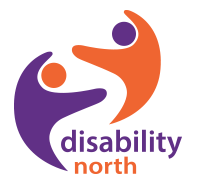A local authority has become the second in London to set up an independent, user-led commission to investigate the barriers faced by disabled residents.
Lewisham Disabled People’s Commission (LDPC) will be led by disabled people and will examine organisational, attitudinal and physical barriers faced by disabled adults in the borough, and how Lewisham council and others can address those barriers.
They will review key research and information and hear from local disabled residents and users of local services before producing a final report for the council, with recommendations for change.
The commission was set up after an election manifesto commitment by Lewisham Labour council candidates and will be chaired by disabled writer, poet and campaigner Jamie Hale, with its report expected in about a year’s time.
Hale said one of the key issues the commission would examine was the impact of social care charges.
He said: “I know from personal experience that when you live on benefits the adult social care charges can be enormous and wipe out most of your disposable income.
“While I no longer face these, I remain passionate about campaigning to abolish them.”
He said he had made it clear to the council that the direction and conclusions would be set independently by the commission and that it “will not be operating in the pocket of the council”.
The council has pledged to take the commission’s recommendations seriously but has not promised to implement them.
Hale said that likely recommendations such as abolishing care charges could have “significant budgetary implications”, but he said he hoped the council would implement many of the recommendations immediately, and “do the long term work necessary to implement the others”.
Hale said the commission was needed because of the impact of austerity on disabled people.
He said: “As [the work of Disability News Service] has noted, cuts to public services have disproportionately affected disabled people, and this is a situation that requires redress.
“Both the decisions taken around the cuts to be made and the cuts themselves need analysis, and the commission will be looking at the impact of this on disabled people, and what can be done differently in future.”
Lewisham no longer has a disabled people’s user-led organisation, following the closure of Lewisham Disability Coalition, which he said had left disabled people without an organisation working between them and the council, and without their own advice service.
Hale said: “One of the key things we will consider is how the council should relate to disabled people in an ongoing fashion to ensure disabled people are at the heart of making decisions that will affect us.”
Last year, the user-led Hammersmith and Fulham Disabled People’s Commission produced a pioneering report on how to remove the barriers disabled people faced in their London borough by embedding a culture of genuine co-production within the council.
Now LDPC is hoping to follow in its path.
Hale said the work and report in Hammersmith and Fulham had helped him understand the possibilities of such a commission.
He said: “We hope to report back both on specific changes the council should make to decisions and to decision-making processes, and the focus on the Hammersmith and Fulham commission on co-production has been interesting.
“I hope to meet with members of that commission to learn about their experience of their work, and what impact their recommendation of coproduction has really had – whether it was as effective as they had hoped.”
He said he believed an emphasis on a culture of co-production within the council would also be important in Lewisham.
He said: “I think we will make quickly achievable recommendations, recommendations that are aspirational and shape changes we would like to see in the long term, like abolishing care charges, and recommendations to change how decisions are made within the council, and it is there that coproduction – when done properly instead of as a token or to rubber-stamp harmful decisions – is likely to be a focus of our work.”
Another member of the commission, Richard Amm, told DNS: “The commission is important because it is an opportunity for actual disabled people to have their say about how local government affects our daily lives.”
He said he hoped its work would “make things fairer and more accessible” for disabled people in the borough.
Four other disabled people have already been appointed to the commission, which is seeking to recruit up to six more disabled local residents who have a commitment to promoting the rights of disabled people*.
Hale said: “I’m really keen to reach out to people who might not have realised they can be part of something like this and encourage them to apply.
“With a broad and diverse coalition of commissioners I believe we can make some real changes in the borough.”
Cllr Jonathan Slater, Lewisham council’s cabinet member for the community sector, said: “Lewisham is a welcoming borough and we are determined that it is accessible and open to all.
“Jamie’s experience means he is well-placed to lead Lewisham’s Disabled People’s Commission and I am very excited about the positive difference it will make to our residents with disabilities.”
*The closing date for applications is 6 January 2020
11 December 2019. News provided by John Pring at www.disabilitynewsservice.com

